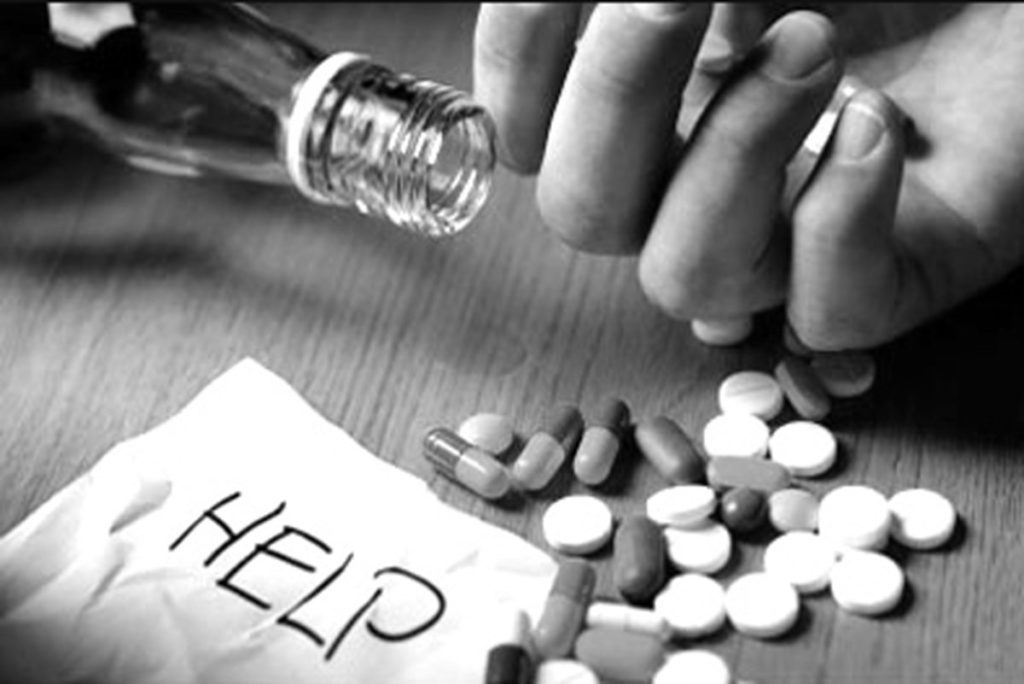How to Help an Addict Who Doesn’t Want Help?
In an ideal world, every person struggling with drug addiction who arrives in drug rehab would be aware of their disease and determined to get well. But when dealing with drug addiction, ideal situations are rare. There’s a strong link between addiction and self-destructive behavior. Substance abuse and addiction are self-destructive behaviors, and a return to drug or alcohol abuse may be a coping mechanism or a perpetuation of self-destruction. Learning how to help an addict who doesn’t want help to stop their self-destructive behavior and the nature of their addiction will be crucial in understanding their situation.
There is an ongoing debate about whether a person struggling with addiction who doesn’t want help can be helped. Many believe that only the addict can help themselves. They have to want to quit. But amid active addiction, few addicts want to quit. In fact, most addicts are, by their very nature, unwilling patients.
Changes in the brain, which drugs have hijacked, leave the addict powerless to truly see themselves and make rational decisions. Because they have come to depend on drugs to function, they will make excuses, justify the indefensible and put off drug rehab treatment as long as possible.
Alcohol or drug addiction affects the entire family; nobody starts using alcohol or drugs to lose everything they hold dear. Still, sadly, that becomes a real risk of addiction for many people. However, it can be challenging to convince someone you care about to seek help, even if it is clear that your loved one seems destined to ruin their life.
The burden you feel in watching an addict sink lower and lower into the grip of their disease becomes even heavier when they refuse treatment. What can you do to break through the denial?
Skip To:
- Educate Yourself About Addiction
- Practice Self-Care
- Intervention
- Set Limits
- Stop Enabling the Addiction
- Start With The Medical Approach
- Search for Reliable Treatment Centers
- Inpatient Drug Rehab Center for Alcohol Disorder Treatment
Learn More:
- Alcohol Abuse
- Symptoms of Alcohol Use Disorder
- Alcoholism and Financial Problems
- Alcohol and Aging
- Alcohol and Insomnia
- Kindling Alcohol
- Alcoholic Cirrhosis
- Mixing Prescription Drugs with Alcohol
- Emotional Effects of Alcohol
- What is Wet Brain in Alcoholics
- Dry Drunk Syndrome
- How To Stop Drinking Alcohol
- Inpatient Alcohol Rehab Center
- Alcoholism Treatment, Signs, Complications & Rehab Programs
- Alcoholic Hepatitis Treatments
- Alcoholism Treatment Near Me
- Alcohol Withdrawal Treatment

Get Your Life Back
Find Hope & Recovery. Get Safe Comfortable Detox, Addiction Rehab & Dual Diagnosis High-Quality Care.
Hotline(844) 597-1011Educate Yourself About Addiction
Before you approach your loved one, take the time to educate yourself about drug addiction, medical detox, withdrawal from alcohol or drugs, and various treatment options. The more you know, the better you can approach the situation calmly and confidently. Understanding what the person is going through, at least on an academic level, will help you speak knowledgeably when discussing the problem.
Addiction is a chronic, progressive brain disease characterized by compulsive drug-seeking even in the face of job loss, damaged relationships, and other negative consequences. Only when treated as such can concerned loved ones provide the level of support, patience, and understanding of the addict’s needs.
Practice Self-Care
How to help an addict who doesn’t want help? Loved ones can encourage, educate, and persuade, but they cannot control the behavior of the person struggling with addiction. They can control their own behaviors and thoughts, including putting an end to any “enabling” and getting support from self-help meetings for loved ones of addicts (such as Al-Anon) and/or working with a therapist.

Intervention
Staging an intervention is a good idea if your loved one refuses treatment and is at risk of serious health-related complications or other serious consequences. Addiction interventions are a highly effective way to break through the addict’s denial and get them into treatment. By staging an intervention, loved ones can get the addict’s attention and help them understand the consequences of their destructive behaviors before more serious consequences ensue.
If you do stage an intervention, be prepared to follow up immediately. Prepare the logistics to make it easy and quick for addicts to begin treatment. This might include providing immediate transportation to a treatment facility. Another way to coordinate recovery is to consider the financial aspect. Gathering information about health insurance, and looking for availability at a treatment facility can be excellent ways to help a loved one. By staging an intervention, loved ones can get the addict’s attention and help them understand the consequences of their destructive behaviors before more serious consequences ensue.
Set Limits
Loved ones often put the addict’s needs and feelings first and become enmeshed in the chaos and lies. Setting and enforcing boundaries not only allows loved ones to resume control of their lives, practice healthy detachment, and safeguard their own well-being and health but also helps the person face the natural consequences of their addiction.
While loved ones may gladly help the addict look for a treatment center, they must set clear boundaries around behaviors they deem unacceptable (e.g., asking the person not to come around if they are high or drunk or refusing to loan money or pay their bills if they are using). While it is important to know how to help an addict who doesn’t want help, it is also crucial to learn how to leave an addict.

Stop Enabling the Addiction
It’s also critical to understand the difference between helping and enabling. If you’re financially supporting a loved one who’s struggling with addiction or lying to help them hide the problem, then you’re enabling. When you recognize this behavior and stop it, the benefits are twofold. First, your loved one will start to see the consequences of their actions. Second, by refusing to continue your enabling behaviors you’ll make it harder for your loved one to keep feeding their addiction.
How to help an addict who refuses help? If someone you care about has a substance abuse problem, one of the most important things you can do to get them to enter a rehab facility is to stop making excuses that allow them to continue using. As hard as it may be to see them struggle, you aren’t helping them get better by giving them money or doing their work. By making it difficult or impossible for them to get their hands on their substance of choice, you can often force them to begin considering getting clean.
Start With The Medical Approach
How to help an addict who refuses help? When a loved one is in the grip of addiction, their clarity quickly withers away. Schedule a routine check-up appointment. Inform the doctor of the addiction before the visit, and do so for multiple reasons. They’ll be better able to identify the issues and see past the person’s excuses.
Doctors will still protect doctor-patient confidentiality, but in their professional and medical opinions, they can also recommend courses of action, which can be very eye-opening for the individual. In some cases, it has been proven to help them think clearly when someone outside of their family or social circle can recognize issues. Before they are too far gone, it’s a wake-up call.
Search for Reliable Treatment Centers
Once your loved one has decided to start treatment, it can be helpful to know what to expect. You might wonder how long treatment will last and what will happen during their recovery. The answer depends on different factors, including:
- The severity of your loved one’s addiction
- Co-occurring mental health conditions
- The duration and frequency of their drug or alcohol use
- Past attempts at recovery
- Support and assistance are available
- Motivation and commitment to recovery
Inpatient rehab programs usually last either 30, 60, or 90 days. The National Institute on Drug Abuse (NIDA) recommends that people spend a minimum of 90 days in treatment.
Long-term treatment and recovery will last for months or even years. Overall progress and setbacks during recovery can extend the duration of treatment.
During this time, there are things that you can do to offer support. Learning more about the treatment process and offering help with immediate needs—such as attending support group meetings with them or driving your loved one to appointments—are all ways that you can support their recovery.
First-class Facilities & Amenities
World-class High-Quality Addiction & Mental Health Rehabilitation Treatment
Rehab Centers TourRenowned Addiction Centers. Serene Private Facilities. Inpatient rehab programs vary.
Addiction Helpline(844) 597-1011Proven recovery success experience, backed by a Team w/ History of:
15+
Years of Unified Experience
100s
5-Star Reviews Across Our Centers
10K
Recovery Success Stories Across Our Network
- Low Patient to Therapist Ratio
- Onsite Medical Detox Center
- Comprehensive Dual-Diagnosis Treatment
- Complimentary Family & Alumni Programs
- Coaching, Recovery & Personal Development Events
Inpatient Drug Rehab Center for Alcohol Disorder Treatment
It is never too late to seek help for a loved one. When deciding how to help an addict who doesn’t want help, it’s beneficial to develop stress management strategies. This is an important step in helping your loved one. To determine the most effective ways to treat alcohol or drug addiction, it’s crucial to get an accurate assessment of all the symptoms. When a mental health professional has evaluated the symptoms, it may be determined that another form of mental condition is present and needs a particular treatment.
Medically-Assisted Detox
Medical detox is often considered the first stage of treatment. It will help you navigate the complicated withdrawal process but doesn’t address patterns of thought and behavior contributing to drug use. Various treatment approaches and settings can help provide the ongoing support necessary to maintain long-term sobriety after you complete detox.
Cravings are very common during detox and can be challenging to overcome. This often leads to relapse. Constant medical care provided during inpatient rehab treatment helps prevent relapse. Clinicians can provide the necessary medication and medical expertise to lessen cravings and the effects of withdrawals.

Psychotherapy
Several different modalities of psychotherapy have been used in the treatment of mental health disorders along with addiction, including:
- Cognitive Behavioral Therapy (CBT) – is an effective treatment that involves making changes in both the patterns of negative thoughts and the behavioral routines which are affecting the daily life of the depressed person for various forms of depression.
- Dialectical Behavior Therapy – is a comprehensive mental health and substance abuse treatment program whose ultimate goal is to aid patients in their efforts to build a life worth living. The main goal of DBT is to help a person develop what is referred to as a “clear mind.”
- Person-Centered Therapy – is a strategy that allows and encourages clients to understand and resolve their concerns in a safe, supportive environment.
- Solution–focused therapy – is an approach interested in solutions that can be quickly implemented with a simple first step leading to further positive consequences.
Get Help. Get Better. Get Your Life Back.
Searching for Accredited Drug and Alcohol Rehab Centers Near You?
Even if you have failed previously and relapsed, or are in the middle of a difficult crisis, we stand ready to support you. Our trusted behavioral health specialists will not give up on you. When you feel ready or just want someone to speak to about therapy alternatives to change your life call us. Even if we cannot assist you, we will lead you to wherever you can get support. There is no obligation. Call our hotline today.
(844) 597-1011Dual Diagnosis Treatment
Drug abuse and mental health disorders often co-occur. In many cases, traumatic experiences can result in a mental health disorders and substance abuse. Dual-diagnosis rehabilitation treats both of these issues together. The best approach for the treatment of dual diagnosis is an integrated system. This strategy treats both the substance abuse problem and the mental disorder simultaneously. Regardless of which diagnosis (mental health or substance abuse problem) came first, long-term recovery will depend largely on the treatment for both disorders done by the same team or provider.
Medication-Assisted Treatments
Medication-Assisted Treatments (MAT) for substance use and mental health disorders are commonly used in conjunction with one another. This includes the use of medications and other medical procedures. During your rehab, the staff from your treatment facility will help you identify what caused your addiction and teach you skills that will help you change your behavior patterns and challenge the negative thoughts that led to your addiction.
Sometimes, the pressures and problems in your life lead you to rely on substances to help you forget about them momentarily. Contact one of our helpful treatment specialists today if you or a loved one are struggling with long-term drug abuse and a co-occurring mental health condition such as depression. We Level Up can provide information on dual diagnosis and medical detox programs that may fit your specific needs.

Sources
[1] NIDA – https://teens.drugabuse.gov/teachers/stats-trends-teen-drug-use
[2] SAMHSA – https://youth.gov/youth-topics/substance-abuse/prevalence-substance-use-abuse-and-dependence
[3] Group Therapy For Family Members Of Addicts To Start Healing – We Level Up NJ